How to get c-suite to back your plans for a cloud ERP
Your business is in the market for a new cloud ERP. The people in the C-suite need to back this as well as any significant project. What considerations are important?
Ensure it meets all your needs
An ERP system must fit your business and meet the requirements you have defined. This is true whether the ERP runs in the cloud or down stairs in the IT department. The people in your c-suite are there because they have experience and training. They aren’t going to back your ERP proposal only because it runs in the cloud. Take care of the important points first and then think about proposing a cloud implementation.
Emphasize the cash flow benefits of cloud ERP
These will be very important to your C-suite occupants. Cash flow is one measure and likely will put the cloud ERP in the lead. Often a business can start using ERP with a first month payment and no other cash output. An on-premise ERP will need a payment for all the software and any servers and network equipment needed before the ERP is available.
On the other hand, that cloud ERP payment goes on forever and the payments never end. Once an on-premises ERP is running, the ongoing cost is limited to annual support fees and some personnel costs in the IT department. Another measure such as net present value or payback period could point to a different winner. Make sure you have clear figures about a ‘break even’ point and emphasize the benefits of continued payments - maybe a clunky on-premise ERP will be completely out-of-date within four years, meaning another expensive selection project.
Each of us has critical factors to consider within our businesses. Some combined strategy such as starting in the cloud and switching to on premises later could be the best bet. Money talks in the c-suite so be sure you speak their language.
Vet the vendor
Be sure to know the vendor’s track record. How well have they served other customers? How long have they been in business? What kind of financial condition are they in? Conservatism reigns in the c-suite. They will want to be careful to select an established cloud ERP vendor who will be around a long time to improve and maintain their product.
Show that your proposed ERP will integrate with current systems
You might plan to integrate this cloud ERP with other systems. Cloud ERP systems, particularly multi-tenant setups require strict security to keep your data safe from other customers whose data is in the same cloud. Integrating other systems means passing data to and from the cloud to the other system and that door in the firewall could expose other customers’ ERP data to your integration. Your other system to be integrated could reside in its own multi-tenant cloud. The desired integration can still work but it can be much more complex and time consuming to implement. Your C-suite people will want to know you have solved this problem.
Free white paper
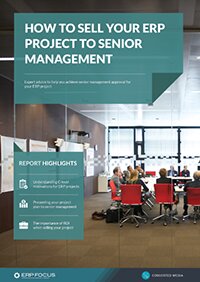
How to sell your ERP project to senior management
Expert advice to help you achieve approval and funding for your ERP project
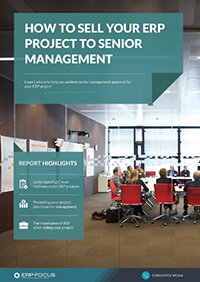
Featured white papers
-
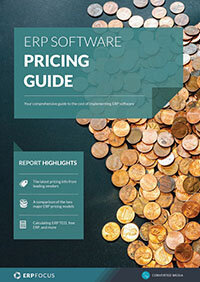
ERP Software Pricing Guide
Get the latest pricing information on over 80 popular ERP systems, and learn how to budget for your ERP project in our free guide
Download -
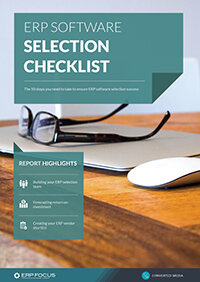
60-Step ERP Selection Checklist
Get the comprehensive checklist for your ERP selection project
Download -
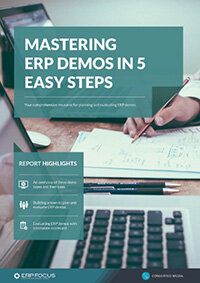
ERP Demo Guide & Scorecard
Master your ERP demo with 5 easy steps using our free guide (includes demo scorecard)
Download
Related articles
-

The best ERP systems for process manufacturing
Consider these ERP systems when selecting your next process manufacturing ERP
-

CMMC Compliance: What Aerospace and Defense Manufacturers Need to Know
Key insights on CMMC compliance, deadlines, and securing DoD contracts with CMMC 2.0 certificatio...
-

5 ERP pricing definitions you need to understand
Have you mastered the ERP pricing lexicon yet? Getting to grips with these five definitions is a ...

